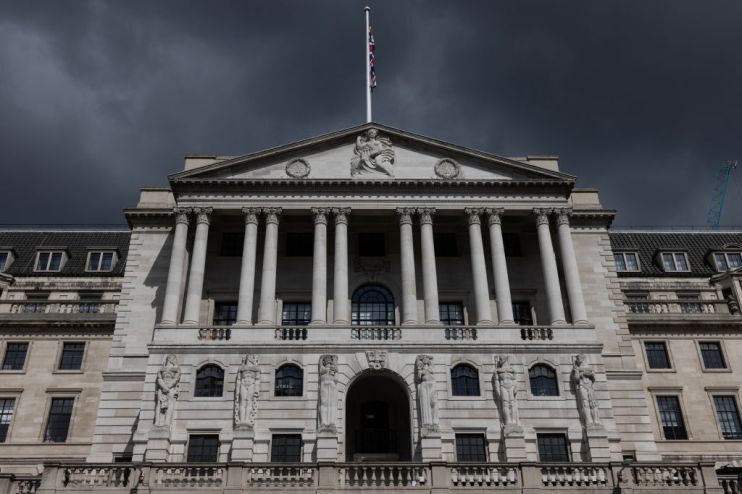Bank of England says UK’s big banks passed stress test and are ‘resilient’ to rising rates

The UK’s largest lenders passed the Bank of England’s stress tests with flying colours, even as concerns grow around the health of the mortgage market.
In its latest stress test, the Bank of England concluded that banks were “resilient”, enabling them to withstand persistently higher inflation and a deep global recession.
“The UK banking system has the capacity to support households and businesses through a period of higher interest rates, even if economic and financial conditions were to be substantially worse than expected,” the Bank of England said.
Lenders started the stress test with improved asset quality and higher deposit balances than in 2019, the last cyclical stress test. This meant that banks had to use less capital in order to get through the test even though the stressed scenario was broadly similar.
Banks’ capital ratios remain well above the required capital rate in the stress, falling from an aggregate start-point CET1 ratio of 14.2 per cent to a low point of 10.8 per cent. The CET1 ratio is a measure of a bank’s financial strength.
“By far the most striking thing about the stress test is the fact that the capital drawdown of capital is really quite a lot smaller than last time we ran a test on this scale,” Sam Woods, head of the Prudential Regulation Authority said.
Each bank had different requirements, but the aggregate hurdle was 6.9 per cent. Barclays and Standard Chartered recorded the biggest falls in their CET1 ratio, falling to 8.5 per cent and 8.8 per cent respectively.
No individual bank was required to strengthen its capital position as a result of the test. The Bank noted that the resilience of lenders relies partly on their ability to cut dividends and bonuses.
“All banks were safely above the hurdle rates for CET1 and leverage ratio. However, there is a clear warning to investors that in the event of a severe stress, banks would reign in distributions,” Peter Rothwell, head of banking at KPMG said.
Shares in banks were trading higher on Wednesday morning, with Virgin Money rising over seven per cent after it said it would resume its buyback programme this year.
The results come amid growing concerns around the mortgage market. Yesterday rates on a two-year fixed deal hit their highest level since 2008.
However, notwithstanding concerns in particular segments of the market, the costs of remortgaging were not expected to pose a risk to financial stability.
Stress tests are designed to test the resilience of banks against potential shocks and inform what level of capital banks must hold. This year the test focused especially on the resilience of banks’ retail divisions against rising interest rates.
The eight banks being tested were HSBC, Barclays, Standard Chartered, Lloyds, Natwest, Santander, Virgin Money and Nationwide. Together the banks make up 75 per cent of the lending to the UK economy.
For the first time, ring-fenced banks were tested on a standalone basis, where these differed significantly from the wider group.
The scenario covered five years, testing how banks would respond if the Bank’s base rate had hit six per cent earlier this year alongside a five per cent fall in GDP and a 31 per cent slump in house prices. The scenario was more severe than the financial crisis.